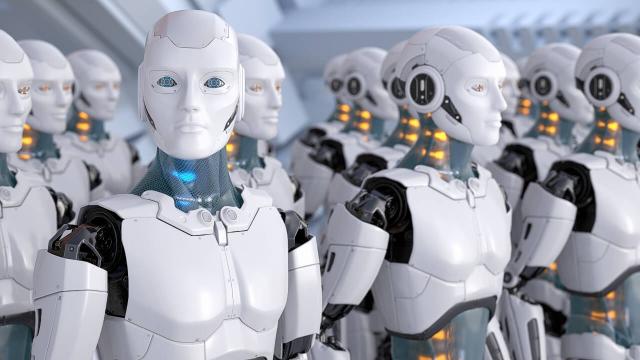Understandably, Artificial Intelligence and all of its possibilities have people hyped. There are always two sides to any coin, and the AI coin is guaranteed to leave most with a bad taste in their mouth.
Elon Musk's AI Ambition
There's no question that Elon Musk has a love for AI technology. This week, he celebrated his first Neuralink brain chip implant and hopes to achieve “a symbiosis with artificial intelligence.” Plenty of people are still weary of artificial intelligence, and for good reason.
Job Layoffs
One negative drawback to integrating artificial intelligence is its effect on real jobs. One estimate is that AI could displace 400 million workers by 2030, and with companies like Google laying off thousands of employees, the numbers don't look good.
Fake Influencers
Social media influencers have been shaping how and what we shop for, public opinion, and other essential perspectives for some time now. However, fake influencers are also having a very negative effect on impressionable young people. As AI technology becomes more sophisticated, concern is growing over the impact that fake influencers are having on the mental health of America's youth and others around the world.
First-Hand Accounts
Do an internet search for negative social media, and you're likely to find story after story of users and parents who've encountered the negative impact social media can have on the mental health of those who interact with their accounts regularly. In March 2020, a presentation on a Wall Street Journal study found that 32% of teen girls said that “when they felt bad about their bodies, Instagram made them feel worse.”
Meta, which owns Instagram, refuted the negative connotation with a rebuttal. “The research demonstrated that many teens we heard from feel that using Instagram helps them when they are struggling with the kinds of hard moments and issues teenagers have always faced.” However, Meta paused its Instagram Kids program, instead offering a more comprehensive range of parental supervision tools. It introduced features encouraging younger users to take a break from the app and steer them away from harmful content.
Algorithm Mutiny
Adding parental controls and tools for young users is good, but it wasn't enough for many parents. Meta has done nothing with the report on Instagram's negative impact, and parents were helpless against the social media algorithms.
Neveen Radwan nearly lost her 17-year-old daughter to a severe eating disorder after the girl showed an interest in a recipe. “Once you look at one video, the algorithm takes off, and they don't stop coming – it's like dominoes falling,” Radwan said. “It is horrific, and we can do nothing about it.”
A report by SumofUs2, which is an advocacy group, found 22 hashtags on Instagram that promoted eating disorders, which connected to more than 45 million posts on the topic. It also found that 86.7% of posts were pushing unapproved appetite suppressants, and 52.9% directly promoted eating disorders.
Damage in the Workplace
It's not just teens who have issues with social media use. The use of social platforms in the workplace is also a complex issue to broach. However, the discussion might be essential to fostering camaraderie and cohesion in your organization. Social media in the workplace can:
- Reduce employee productivity
- Hinder employee relations
- Risk the introduction of viruses and malware
- Affect employee wellbeing
- Impact organizational reputation
- Decrease employee engagement
- Removes privacy
- Lead to increased harassment and bullying at work
- Increases workplace gossip
- Result in a loss of talent
- Impact the company legally and financially
These negative aspects of social media use are twice as significant for solopreneurs, entrepreneurs, and companies that profit from loading content onto social media. When 86% of digital marketers expect content writers to lose jobs to AI, and AI influencers are racking up millions of followers, there's a need to discuss AI and social media use in the workplace. The need for transparent regulation of AI-generated content is especially needed as jobs and lucrative brand deals for real influencers, content creators, and the entire gig economy suffer under increasing AI integration.
Protecting At-Risk Users
The safety of at-risk users on the internet is essential, especially concerning AI-generated content. Distinguishing between reality and fakery is getting increasingly difficult as companies investing in artificial intelligence seek to further the interactive technology and their bottom lines.
As new regulations restrict where, when, and how AI content and creation happens, parents and the global community must adapt. Users must implement new expectations and safeguards to help at-risk teens and young adults stay safe amid new encounters and challenges with increasingly sophisticated artificial intelligence.

